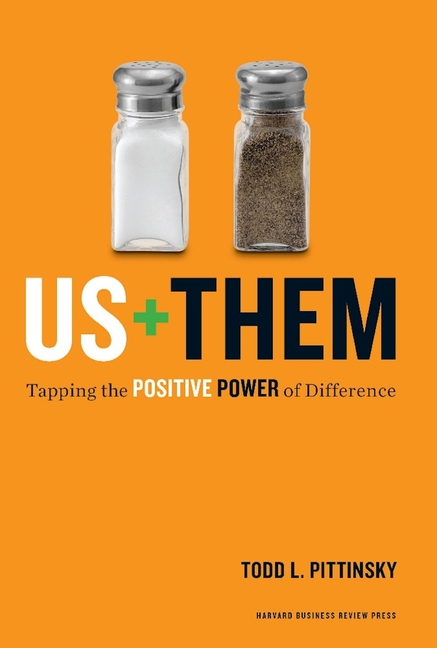Jack Covert Selects - Us Plus Them
August 09, 2012
Us Plus Them: Tapping the Positive Power of Difference by Todd L. Pittinsky, Harvard Business Review Press, 272 pages, $27. 00, Hardcover, August 2012, ISBN 9781422177778 This past Sunday morning, eleven miles from our office here in Milwaukee, a prejudiced and hate-filled man walked into the Sikh Temple of Wisconsin and opened fire, murdering six people and wounding four others.
Us Plus Them: Tapping the Positive Power of Difference by Todd L. Pittinsky, Harvard Business Review Press, 272 pages, $27.00, Hardcover, August 2012, ISBN 9781422177778 This past Sunday morning, eleven miles from our office here in Milwaukee, a prejudiced and hate-filled man walked into the Sikh Temple of Wisconsin and opened fire, murdering six people and wounding four others. Not only did those shots shatter the serenity of what was a beautiful Sunday morning, they tore asunder a peaceful community's sense of safety among us. It reinforced how much work there remains to be done to combat hate and intolerance, but more than that, it reminded us that we must reinforce our communities with a better understanding and love of our neighbors.
And so Us Plus Them, Todd Pittinsky's new book from Harvard Business Review Press, arrives at an ideal time. There is a robust social science and an array of organizations that exists around the subject of hate and how to combat it, and there are many laws on the book, but until now there has been little to no study of tolerance of, and even positive regard for, diversity.
The author uses a business analogy that illustrates this point very clearly.
Imagine if we knew all about how a business can cut costs but little about how they can generate income—simply because almost no one had bothered to study that. Then imagine a business leader, well versed in such one-sided research, trying to turn a failing business around only by reducing its costs—certainly very important—while doing nothing to generate new business. It would never work.Pittinsky argues that we need to do better than lead away from the negative forces of prejudice and discrimination and lead toward our natural human tendency to be drawn to, curious about, and delighted by the "other"—to lead toward seeking out and taking pleasure in the differences among us. There is no word for these "positive feelings or behaviors toward the members of another group" that acts as the opposite of prejudice and discrimination, so he and his colleagues came up with one—allophilia, derived from the Greek words for "liking of the other."
Shifting the paradigm of diversity to its positive dimensions, beginning an understanding of the psychology and social science behind it, and laying out leadership strategies that can help harness all that positive energy to "build the schools, neighborhoods, companies, and nations we want, and not simply avoid the ugliest problems of the past," Pittinsky helps remind us that diversity is a fact, not a goal—and certainly not a problem. Just as the medical sciences have evolved from focusing solely from the study of illness and injury to embracing a study of well-being, Us Plus Them helps us begin to ponder organizational and societal well-being and teaches us how to lead toward allophilia and embrace of "the other" as we continue to fight the sickness of bigotry and hatred among us.


